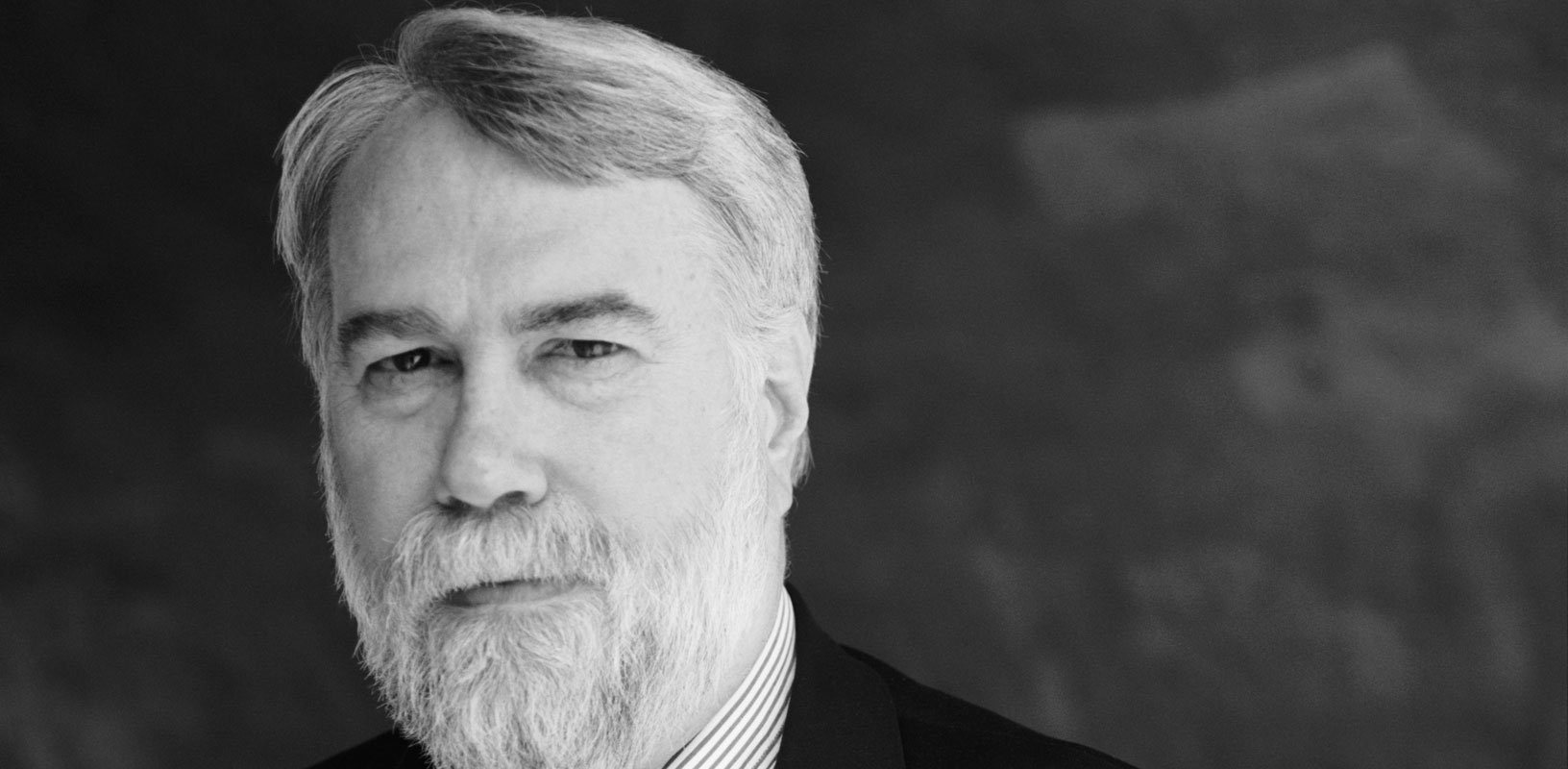Christopher Rouse at 75

America’s great orchestral composer Christopher Rouse—whose 75th anniversary is celebrated in 2024—created a rich catalog of music marked by extreme emotional depth and colorful orchestration.
Provocative, electrifying, rapturous—the hallmark of Christopher Rouse’s music is its unparalleled emotional intensity. His award-winning music is immediately distinguished for its maximal exploration of the orchestra’s colors, timbres, and dynamics. NPR declared, “Rouse can make even a modestly sized orchestra roar, shriek, and nearly explode.”
Rouse, who passed away in 2019, would have turned 75 on February 15, 2024. During his career, he built a legacy as one of the most powerful voices in the orchestra world. His prolific catalog is anchored by six individualistic symphonies, concertos for 12 different instruments, and a multitude of compelling concert openers.
His final work, Symphony No. 6—a dark, meditative score of profound depth—was posthumously premiered to acclaim and was recently recorded by Cincinnati Symphony Orchestra and Louis Langrée. The New York Times wrote: “If you listen closely enough, all of Mr. Rouse—contemplative elegy, rowdy playfulness, eclectic homage—is in this score, masterfully orchestrated and transparently rendered. Twenty-five minutes long, it has the sweep of Mahler but the concision of poetry.”
> Listen to Rouse’s orchestral works on our curated Spotify playlist.
Concert Openers
Rouse’s evocative concert openers command audiences’ attention from the first notes. One of Rouse’s most popular works,Rapture conveys a sense of spiritual bliss, taking listeners on a 13-minute wild ride through a sustained, gradual acceleration to the breakneck tempo of the work’s final moments. Rouse called Bump a “nightmare conga” that conjures a raucous dance floor, driven by a powerful bass drum hit on every fourth beat. A popular choice as a concert opener, Phaethon is an early work from 1986 that depicts the character from Greek mythology, who takes a fateful ride in his father’s chariot of the sun across the sky to prove his divinity.
The Symphonies
Rouse’s six towering symphonies nod to the long tradition of great symphonists. His First Symphony from 1986 is a somber work—a single-movement adagio that lasts nearly 30 minutes and pays homage to composers of adagios, including Shostakovich, Sibelius, and Bruckner. In his Third Symphony, he explores his fascination with Prokofiev’s aggressive Symphony No. 2, using its unusual two-movement structure as a skeleton for his own work.
Rouse’s Fifth Symphony—which won a 2021 GRAMMY Award for Best Contemporary Classical Composition—also pays homage to an earlier master, tipping its hat to Beethoven’s own Fifth Symphony in its opening and through some of its structural choices. At its premiere, the Dallas News wrote “Rarely does a brand-new piece of music really grab me and keep me completely engaged on first hearing. But the world premiere of Christopher Rouse's brilliant, exciting and at times hauntingly beautiful Fifth Symphony had that effect.”
The Concertos
Rouse composed 12 concertos, written for a variety of instrumental soloists: piano, organ, guitar, percussion, trumpet, trombone, flute, oboe, clarinet, bassoon, violin, and cello. His Flute Concerto, written for Carol Wincenc, is one of his most performed works around the world, with recent performances in Denmark, Austria, Finland, Switzerland, and the UK. Several other concertos for less traditional solo instruments, such as percussion, trombone, or guitar, have become beloved works to showcase principal players.
His concertos have garnered several prestigious awards. The Trombone Concerto, written for Leonard Bernstein and dedicated to him after he passed away, earned Rouse the 1993 Pulitzer Prize in Music. His Cello Concerto, premiered by Yo-Yo Ma and the Los Angeles Philharmonic for the orchestra’s 75th anniversary, won two GRAMMY Awards. His guitar concerto Concerto de Gaudi, inspired by the Spanish architect Antoni Gaudi’s combination of surrealism and mysticism, won the 2002 GRAMMY for Best Contemporary Composition.
> Listen to the Trombone Concerto
Programmatic Music
Rouse had a knack for tapping into fantastical narratives in his works. Prospero’s Rooms, an “overture to an unwritten opera,” was inspired by Edgar Allan Poe’s eerie short story, “The Masque of the Red Death,” and follows the narrative’s progression from room to room, bathed in different colors. Steeped of mythology, Heimdall’s Trumpet for trumpet and orchestra refers to the Nordic god Heimdall, whose trumpet blasts announces the onset of Ragnarok (Armageddon). Iscariot (1989) is an intense and sorrowful score, named after Judas Iscariot. It follows a pattern of alternating strophes and antistrophes in the ancient Greek dramatic tradition. Der gerettete Alberich for percussion and orchestra imagines what becomes of Alberich, the villainous dwarf in Wagner’s Der Ring des Nibelungen.
Photo: Jeffrey Herman
